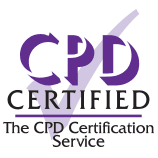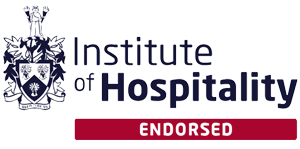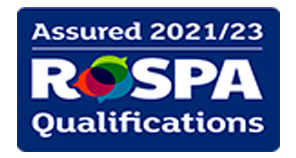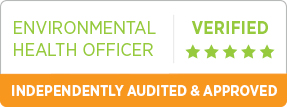
This Level 2 food safety course is aimed for those who are involved in food production, process and distribution business. The course enables them to understand the legal procedures, rules and regulations, safe and healthy practices, controlling hazards, managing food safety, workers’ personal hygiene, storage and transportation safety and overall cleanliness.
As per the law, all food handlers such as workplace managers, supervisors, cooks, food processors, suppliers, etc must have an understanding of the best practices and procedures of maintaining high food quality, hygiene and should ensure safe and healthy work environment to prevent the food and food products from getting contaminated.The food safety training provides candidates with the latest and standard food hygiene methods with the help of well-researched and approved written study material, interactive exercises and informative video content to help students improve their knowledge and expertise in food safety responsibilities.
Some of the highlights of the course include:
- Equals to RSPH and CIEH syllabus
- Same as REHIS elementary food hygiene syllabus
- Agreement to UK and EU legal requirements for food handlers
- Accredited by CPD and Approved by RoSPA
- Offered through online mode with instant assessment
- Full audio voiceover
Who Should Take This Course?
The European Union Regulation (EC) No 852/2004 on the hygiene of food and food material mandates that all food handling people should have proper training to safely carry out their roles.
This Level 2 Food Hygiene and Safety for Catering course trains candidates to follow the prescribed food handling practices and make workplaces compliance at to all legal responsibilities, safety and health standards and other internationally proven practices.
The course is best suited for people who are associated with food industry as food managers, supervisors or food handlers of various levels at places like small to big eateries, restaurants, hotels, bars, mobile food trucks, cafes, canteens, takeaways, hospitals, fast-food outlets, kitchens, schools and colleges.
Certification



Students can use this certification not only for career enhancement, but also as an evidence for compliance and audit.
The course is accredited by the UK-based leading CPD Certification Service which means that students are trained at Green World Group as per the universally accepted Continuous Professional Development (CPD) guidelines.
The Royal Society for the Prevention of Accidents (RoSPA) has approved this course by giving consent for providing quality and content-approved training.
Environmental Health Officer Approved
This safety course has been audited and approved by the competent Environmental Health Officers, who have reviewed the training materials and also verified for having relevant knowledge, skills and data to achieve the required level of training.

The course is divided into 8 accessible, interactive modules and includes an assessment at the end.
- Food Safety Legislation – food handlers and the law, key terms, European and UK regulations, food handler training, prosecution, HACCP, enforcement of food safety law, legal notices, due diligence and the Food Hygiene Ratings Scheme.
- Microbiological Hazards – the top 10 causes of food poisoning, food poisoning in the UK, symptoms of food poisoning, preventing food poisoning outbreaks, controlling temperature and time, low and high risk foods, cross contamination, common food poisoning bacteria, food spoilage, food preservation and preventing microbiological contamination.
- Physical, Chemical and Allergenic Hazards – types of physical contamination and controlling physical contamination, chemical hazards and controlling chemical contamination, allergenic contamination and controlling allergens, food intolerances, anaphylactic shock and allergen law.
- Food Storage – choosing a supplier, food distribution and deliveries, food labelling and storage, use by and best before dates, refrigeration and temperatures, freezing and defrosting and stock rotation.
- Food Preparation – cooking, reheating, taking food temperatures, how to take a food temperature, hot holding, cooling food and food service.
- Personal Hygiene – food handler responsibilities, hand hygiene, hand washing procedures, protective gloves, bad habits, illness, hair, jewellery and smoking and protective clothing.
- Food Premises Design and Cleaning Schedules – food premises and the law, principles of design, waste management, cleaning and disinfection, cleaning schedules, safe cleaning, six stages of cleaning, cleaning food storage areas and chillers, dishwashers, pests and preventing pests.
- Further Information – how to register a food business, contacting the local authority, Safer Food Better Business, legal documents and FSA publications.
The course can make the candidates capable of performing the following responsibilities:
- Can locate and remove food hygiene hazards.
- Demonstrate safe food practices.
- Ensure everyone follows prescribed standard and control measures to achieve high food hygiene benchmark.
- Make others understand the principles of food safety management systems.
- Work to meet the ethical values of customers and understand the legal obligations and responsibilities as a food handler.
Students, after completing their online training session, will be asked to go for an online assessment test. They have to answer 30 multiple choice questions from the syllabus and to get 70 % to clear the exam. Upon completion of the test, the answers are reviewed

